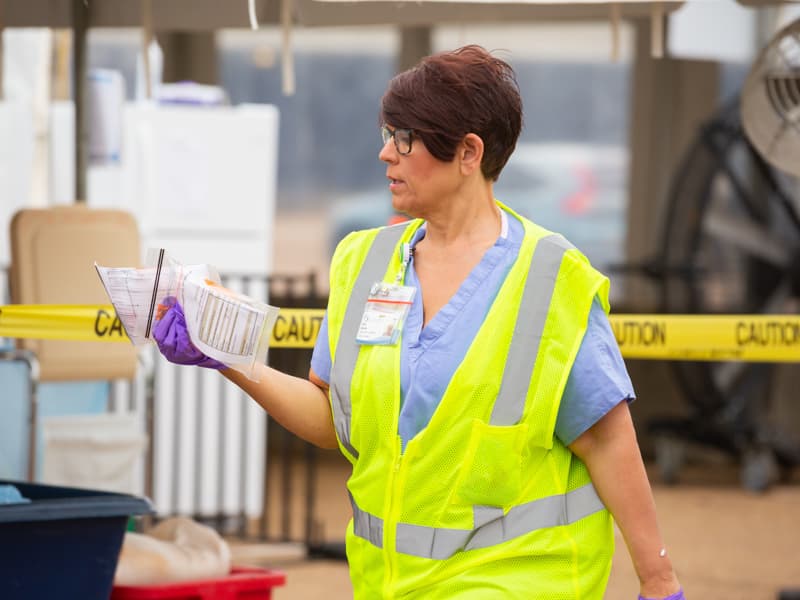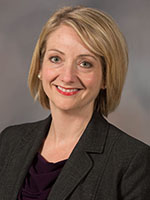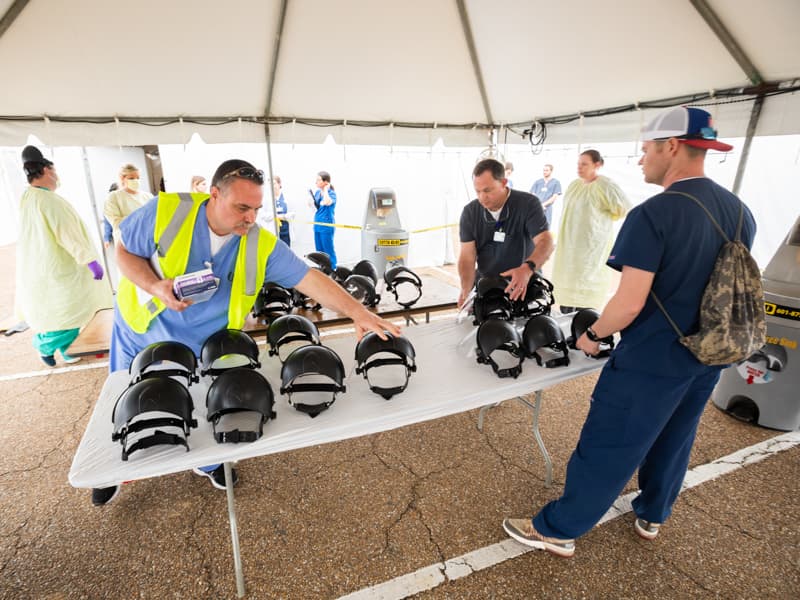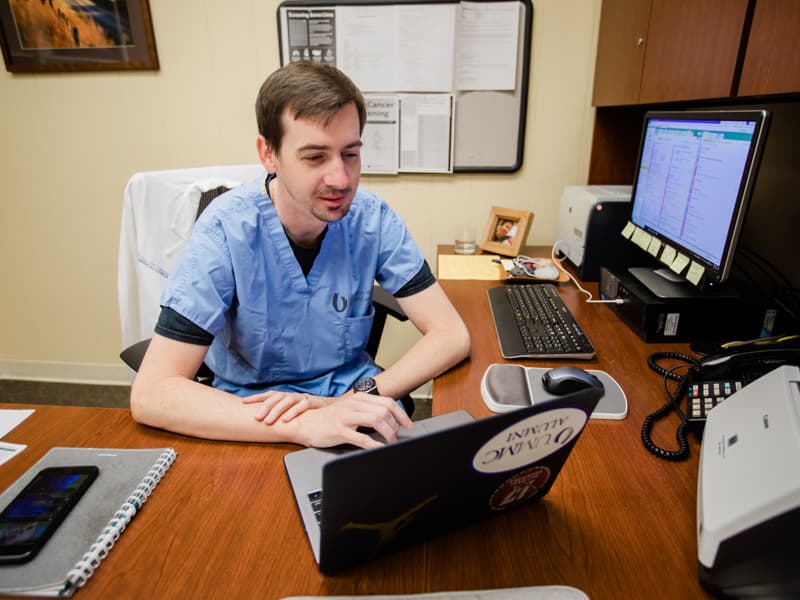Medical Center deploys UMMC Reserves to needed areas for COVID-19 battle

The University of Mississippi Medical Center community has strategically planned for an anticipated surge of COVID-19 patients at the hospital while also doing everything possible to keep the community safe and healthy.
These efforts are possible in part because of the UMMC Reserves. As non-emergency surgeries and clinic appointments are rescheduled amid the growing pandemic, many employees are now in jobs that look quite different than what they were doing two weeks ago.
Leaders from the clinical, research and academic areas of UMMC are working together from a staffing command center located in the School of Nursing’s auditorium to identify needs and the people with the skills to fill those needs. Last week, nearly 130 employees were deployed each day to different roles on and off campus.

“I’m so proud of our UMMC Reserves team and the entire UMMC community coming forward and being resilient and flexible,” said Karen Dowling, Children’s of Mississippi chief ambulatory and network operations officer and the executive leader tasked with overseeing labor logistics, including supply and demand during the COVID-19 response.
Before COVID-19, Tricia Opdyke spent her days in the pediatric heart catheterization lab in the Children’s Hospital as a cardiointerventional technologist. When her boss told her two weeks ago there would be a huge decrease in their census, she also encouraged her to apply for the Reserves.
Opdyke, wanting to help, went to the informational email but couldn’t get the link to work. She inadvertently replied to all, indicating she could work anywhere, any shift, 24 hours a day, seven days a week.
Her reply to all went to Dr. LouAnn Woodward, vice chancellor for health affairs and dean of the School of Medicine, who responded by thanking her and directing her to the working link.
Opdyke didn’t have time to feel embarrassed by her technological mishap. She soon received an email asking if she would come to work as a shift leader at the Mississippi State Fairgrounds testing site. Opdyke agreed and was one of the first people trained on the inaugural day of the operation, which has now grown to collecting more than 160 samples in a single day.
In less than two weeks, Opdyke has received two “battlefield promotions” – first to tent supervisor and now to her current role in logistics, a position on the leadership team.
“All of a sudden, I was thrown into this leadership role with people I’ve never met during a pandemic that is going to be more than anything this country has ever seen,” she said.

What was first apprehension soon transformed into confidence and a complete sense of trust.
“I have seen what the true definition of teamwork is in my experience at the fairgrounds,” she said. “I’ve got people, they trust me 100 percent do my job, and I trust them 100 percent to do theirs. We are all there to ensure the safety of not only our coworkers, but our community as a whole.”
Five (and sometimes more) days a week, Opdyke arrives at the site at 7 a.m. Usually one of the first people there, she turns on all the generators and ensures there is working power in every tent, along with enough food and water for all the workers. She checks the precious personal protective equipment, or PPE, to make sure there is enough.
During the day, she remains in constant contact with the people supplying all the equipment needed to make the site continue working. She performs maintenance on the tents and any other area of the site that needs it.
“Every day is a process, and we are continuously improving the process each day,” she said of the work she does with other members of the leadership team, including Paul Bird, ambulatory operations director for University Physicians, and Amanda Laura, ambulatory nurse educator.
Jonathan Hontzas, a nurse practitioner and the co-director of the Lung Cancer Early Detection Program, found himself wondering what he would be doing after many of his nonessential clinic appointments were rescheduled.

“I was looking for some way to help. The last thing anybody wants is to be helping people five days a week, and then all of a sudden you feel useless at a time when you’re probably the most needed,” said Hontzas.
After being contacted by Ashley Seawright, the Department of Surgery’s clinical director of transplant surgery and surgical oncology and surgical chief of advanced practice, he now works the hotline that screens people for appointments to be tested for COVID-19. Each morning he wakes up and responds to a long waiting list of people who have called the hotline during the night.
He speaks to them about their symptoms, either on FaceTime or by phone – essentially performing a telehealth visit to see if they meet the criteria for testing. Then, throughout the day, he continues answering calls.
Academic and research-based employees have been stepping up as well, with the help of Abby Street, business administrator of the Department of Otolaryngology and Communicative Sciences, who works in conjunction with the UMMC Reserves to help identify people who can meet staffing requests.
For example, a group of non-clinical staff now work at the table where employees can go to receive masks to help them feel safe, in addition to employees who are now providing accounting services to help with expenses incurred by the Medical Center related to COVID-19.
“People are stepping up and asking for ways they can go above and beyond what the normal expectation of their job might be,” said Street.


